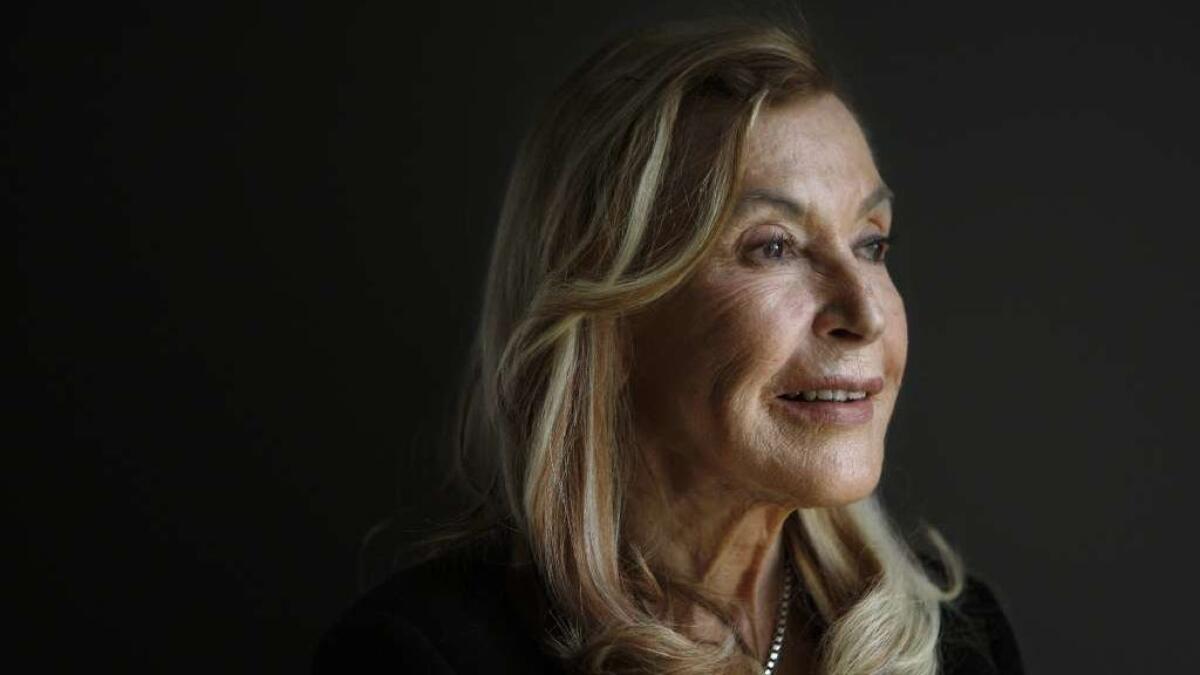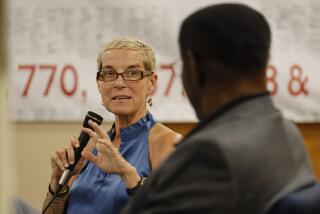Ramona Ripston, former executive director of ACLU of Southern California, dies at 91

- Share via
Ramona Ripston, whose four decades at the helm of the American Civil Liberties Union of Southern California shaped the liberal agenda in Los Angeles and beyond, died Saturday at 91.
She had been in failing health since she suffered a fall in March, said her son, William Caplin.
During 39 years as executive director of the ACLU, Ripston pushed her organization and its supporters to embrace causes beyond traditional civil rights work such as police brutality, school funding and gay rights.
“She had no qualms about being out in front of an issue. She never put her finger up to see which way the wind was going to blow,” said Santa Monica civil rights attorney Carol Sobel, a longtime friend and colleague.
Her efforts earned her many critics. Leaders of the national ACLU broke with her over some proposals. Former Los Angeles Police Chief Daryl Gates derided her as “Ramona the Ripper” and conservative radio’s Rush Limbaugh labeled her and her husband “left-leaning commie socialists.”
But her tenacity also won her many admirers.
“Just knowing her caused one to lean in every direction she leaned in,” said legendary television producer Norman Lear, one of many celebrities with whom she forged alliances.
Lear noted that he was campaigning for progressive candidates in Florida when he learned of her death and said, “Had I not known Ramona Ripston and been influenced by her, who knows if I would be here.”
Ripston, born in Queens in 1927, graduated from Hunter College with a political science degree and then worked as a fashion model. She married a wealthy lingerie manufacturer but became bored as a housewife and began volunteering at the New York Civil Liberties Union.
The marriage ended, but her interest in civil rights endured. She was named head of the ACLU of Southern California in 1972. At the time, it was a tiny outfit with a half-dozen employees working over a wig shop in downtown L.A. By her retirement, the organization had 90 employees, four offices and a national reputation for activism.
From the start, Ripston’s appearance announced a break from the past. Tall and thin with a waterfall of blond hair and a model’s bearing, she strode into contentious court hearings or political rallies in stylish ensembles and spike heels.
“She just didn’t look like the rest of the people in the ACLU,” Sobel said. “It made it easier for some men to deal with her.”
She had a knack for grabbing media attention. Shortly after the Rodney King beating in 1991, Ripston pushed her way to the front of a packed Police Commission meeting and dumped boxes of petitions calling for Gates’ resignation on the table where the chief was sitting.
Lawsuits filed under her leadership forced the state to upgrade substandard public schools, the LAPD to disband a special unit that was spying on citizens and L.A. County to redraw its voting map, ushering in the election of the first Latina supervisor.
Ripston advocated for the homeless and proposed an “economic bill of rights” for all citizens, telling ACLU staffers that “if you don’t have food on the table or a bed to sleep in … equality and justice are just illusions.”
“That was a very bold position at the time,” said Hector Villagra, who succeeded Ripston as the ACLU of Southern California’s executive director.
Former Mayor Antonio Villaraigosa said Ripston would be remembered as “a real giant” who showed “moxie, chutzpah, courage.”
“If she believed in something and she thought she was right, she wouldn’t back down,” Villaraigosa said.
Ripston was married five times. She had decided early in her life to keep her name on principle and joked, “That turned out to be a good thing.”
Her last husband, Judge Stephen Reinhardt of the U.S. 9th Circuit Court of Appeals, died in March. She is survived by her daughter, Laura Ripston, of Los Angeles; her son; and three grandchildren. Her son, Mark, died in 1994.
Times staff writer Marisa Gerber contributed to this report.
Twitter: @latimesharriet
More to Read
Sign up for Essential California
The most important California stories and recommendations in your inbox every morning.
You may occasionally receive promotional content from the Los Angeles Times.














